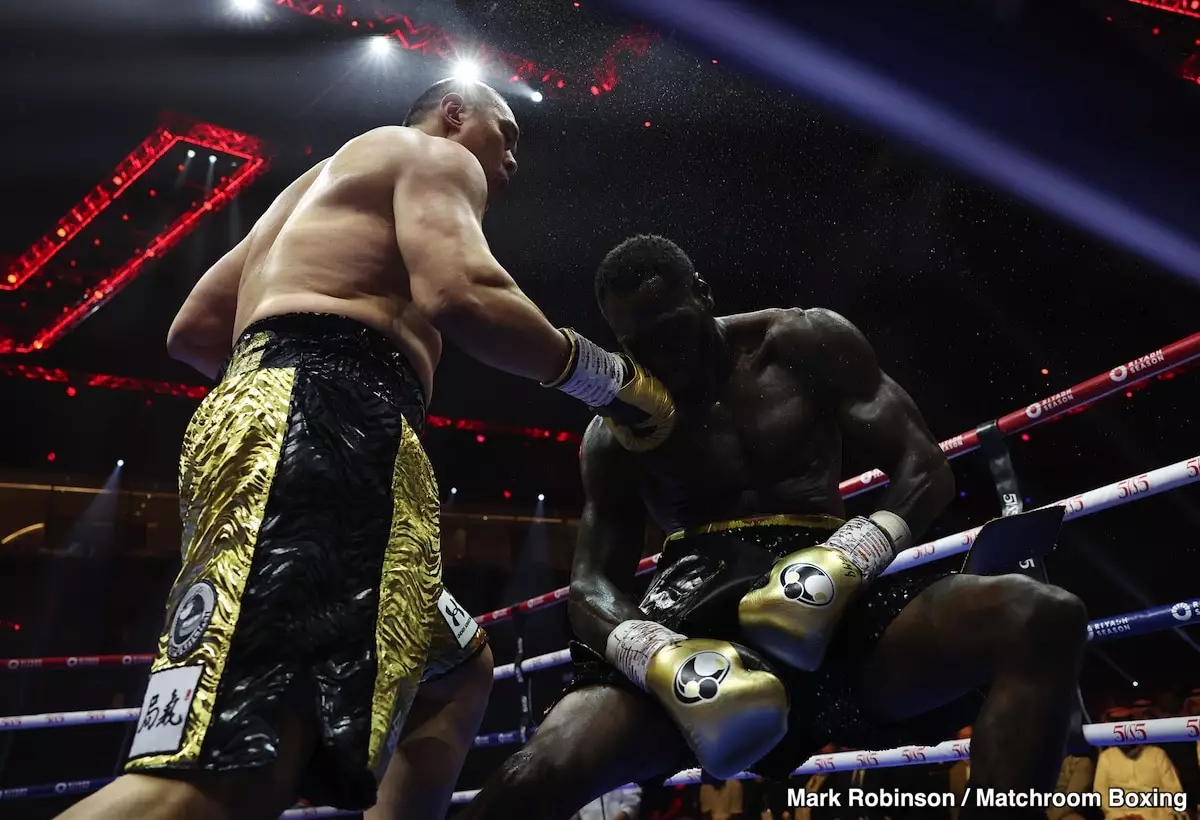As Deontay Wilder gears up for his pivotal fight in 2025, the future of his boxing career hangs precariously in the balance. Known for his explosive power and a professional record of 43 wins, 4 losses, and 1 draw, Wilder’s recent trajectory has raised eyebrows. Despite being a former WBC heavyweight champion and having knocked out 42 of his opponents, recent performances indicate a worrying decline. He has secured just one victory in his past five bouts, with a well-documented defeat against Robert Helenius in 2022, marking a significant low for a once-dominant athlete.
Hailing from Alabama, Deontay burst onto the boxing scene in 2008 full of promise and ambition. However, after over a decade in the sport and an estimated net worth of $30 million, questions arise about his current hunger and commitment. Training under Malik Scott, Wilder has faced increasing scrutiny for his inability to deliver strong performances. How did a fighter known for his knockout power find himself at such a crossroads?
Wealth can be a double-edged sword for athletes, and in Wilder’s case, it may significantly undermine his fighting spirit. His trainer, Malik Scott, has candidly assessed this situation, suggesting that financial success has lulled Wilder into complacency. He now navigates life in luxury—waking up in lavish surroundings and driving high-end cars—elements that might detract from the fiery drive that once propelled him to the top of the boxing world.
Despite Scott’s assertions, it’s essential to consider whether wealth alone can account for Wilder’s recent lackluster performances. Many fans have pointed to a more pivotal change: a transformation in fighting style that may not align with Wilder’s strengths. Retooling a career-long slugger into a more technical boxer at this stage may not only be risky but could also dampen Wilder’s natural instincts in the ring.
One of the most debated aspects of Deontay Wilder’s career is the impact of switching coaches. In 2021, Wilder parted ways with long-time trainer Mark Breland, a decision that comes with inherent risks. Over the last three years, under Malik Scott’s guidance, Wilder’s record has further deteriorated to one victory against three losses. This change in stewardship prompts questions about the effectiveness of altering a fighter’s foundational style so late in their career.
Critics argue that the strategic shift from a powerful slugger to a more technical fighter has not only been unsuccessful but has also alienated Wilder from his innate fighting instincts. A prime example can be seen in his bout against Joseph Parker, where instead of leveraging his knockout power, Wilder appeared to lack aggression, failing to decisively engage with his opponent for the full twelve rounds.
While Scott asserts that Wilder possesses the ability to turn things around, the question remains if he has the desire to adapt to this new style. As Wilder stands on the brink of a crucial fight, Scott’s tenure and strategy must come under the microscope, highlighting the intricate relationship between coach and fighter.
Despite the disheartening statistic of three losses, Wilder’s path isn’t entirely devoid of potential. There remains a flicker of hope that he can reclaim some semblance of his former self. Recent comments from Scott suggest that the forthcoming fight in 2025 may serve as a watershed moment; Wilder could either abandon the new style or refine it to emerge stronger.
The combined weight of two consecutive losses against formidable adversaries certainly exacerbates the pressure, but it also emphasizes the urgency of change. As Scott aptly notes, “Everything counts now.” The stakes are undeniably high, and while wealth may have softened his initial drive, a rekindling of that fiery ambition may yet rewrite Wilder’s legacy in the heavyweight landscape.
Deontay Wilder’s upcoming fight presents a crossroads in his career—one that vividly encapsulates the complexities of wealth, coaching styles, and personal ambition. Whether he can merge his raw power with refined technique remains to be seen, but the boxing world watches with bated breath.

